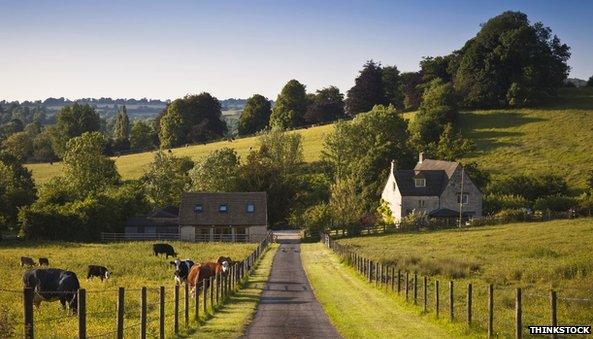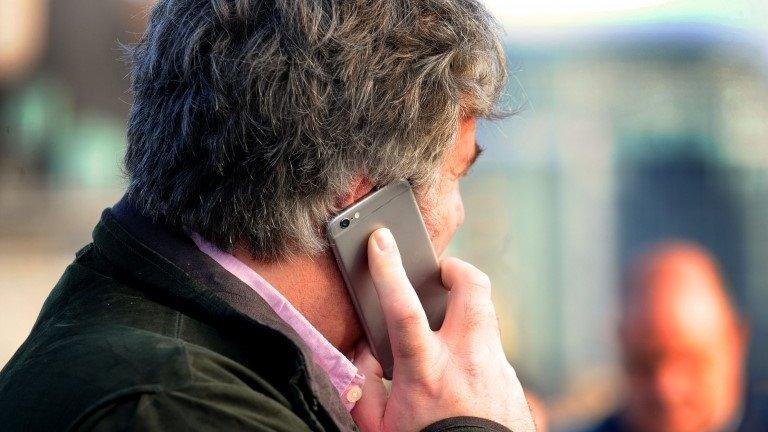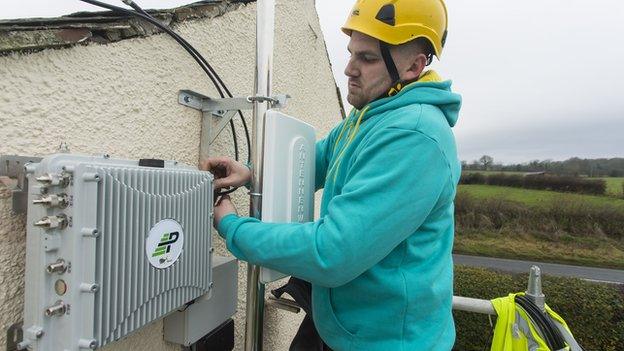UK's mobile firms agree to cut voice and text dead zones
- Published

Voice coverage can still be patchy across many of the UK's more remote areas
The UK's mobile networks are being compelled to reduce the number of areas where it is impossible to make voice calls or send texts via their services.
Their licences have been amended to say they must each provide voice coverage to at least 90% of the UK's landmass by the end of 2017.
The companies already meet a commitment to provide 3G coverage to 90% of UK premises.
But that still means many users experience dropped calls when outside.
In December, Ofcom published a report, external that specified how much 2G geographic coverage three of the four operators provided - representing their ability to let subscribers make and receive calls and texts. It stated:
Vodafone covered 82% of the UK
O2 covered 78% of the UK
EE covered 78% of the UK
The watchdog was unable to provide a figure for Three's 3G and 4G-based voice and call geographic coverage.
"For far too long, too many parts of the UK have regularly suffered from poor mobile coverage, leaving them unable to make calls or send texts," said the Culture Secretary, Sajid Javid, announcing that the licences, external had now been changed.

Train passengers should experience fewer voice call drop-outs on their journeys
"Now at last we have progress that will give the UK the world-class mobile phone coverage it needs and deserves."
The Department for Culture, Media and Sport (DCMS) said it expected the deal to mean the total number of "not-spots" would fall by two-thirds.
Mr Javid had told the operators in November that if they did not agree to improve the situation, he might compel them to automatically transfer customers to rival networks, without charging a fee, when they lost their signals.
The networks complained at the time that such a move would shorten handsets' battery lives and pose a risk to the security of their systems. But in December, they agreed to let their licences be changed to meet the new goal.
4G targets
The 2017 target should mean that mobile subscribers suffer black spots less frequently while travelling across the countryside and visiting rural areas.
"We support the government's action to improve mobile coverage for the millions of consumers left frustrated by being unable to connect to a network," said Richard Lloyd, executive director of the consumers association Which?
"We now need to see swift action from the mobile phone companies, with financial penalties if they fail to deliver their commitments, to start putting 'not-spots' to an end."
Ofcom noted that, external EE, Three and Vodafone had also indicated that they were on course to match O2 by providing 4G coverage to the interior of 98% of UK premises by the end of 2015. EU competition regulators have still to rule on the plan.
Three may be aided in its ability to meet the later 2017 target by the fact that its parent company, Hutchison Whampoa, is attempting to purchase O2 from its current owner, Telefonica.
- Published18 December 2014

- Published2 December 2014

- Published5 November 2014
